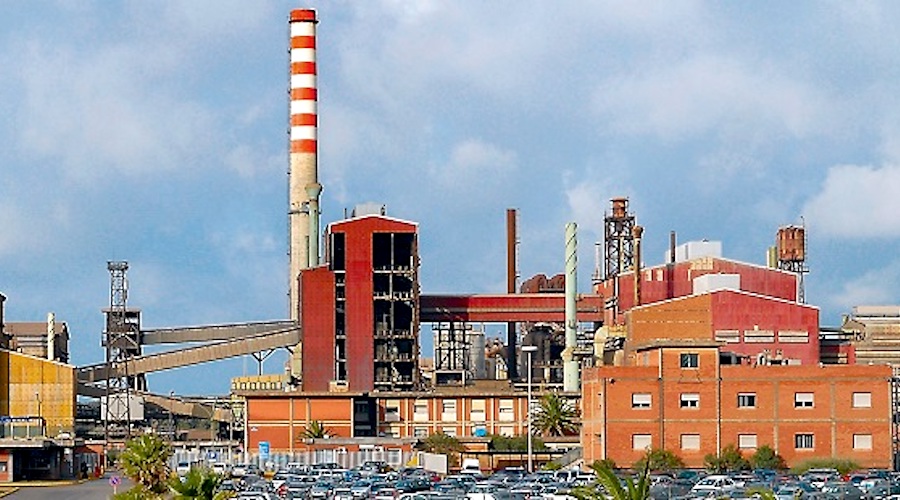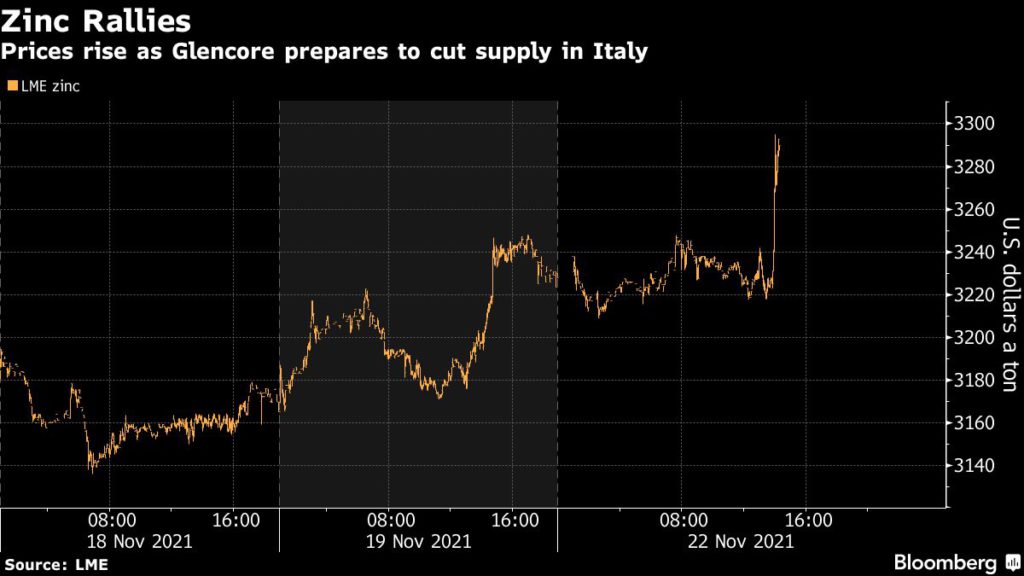Glencore to close Italian zinc operation on power costs

Glencore (LON: GLEN) is placing its zinc sulphide operation in Portovesme, Italy, on care and maintenance by the end of December at the latest and it will remain closed until there is “a meaningful change in power market prices”, the miner and commodity trader said on Monday.
The decision to close the plant, which has capacity of 100,000 tonnes a year, follows a sharp increase in power prices in Italy and the rest of Europe, Glencore said.
“As an electro-intensive industry, Portovesme is highly dependent on competitive and stable electricity prices,” the company said in a media release.
Soaring prices of natural gas, used for power generation and heating, as well as low renewable energy output and higher carbon prices, have caused power prices in Europe to spike this year.
The continent is growing increasingly reliant on coal to keep lights and heat on as temperatures continue to drop.
Glencore said its decision, which affects about 400 direct employees, will be periodically reviewed against the backdrop of the European energy market.
The other production areas that are less dependent on electricity consumption, such as zinc recycling and lead production will continue to operate as usual, the company said.
Portovesme is the only Italian zinc and lead producer and is considered to be of national and strategic importance by the country’s government.
Global zinc production is estimated at about 14 million tonnes this year, with about half of that expected to come from China, the world’s largest producer.
Price jumps
Zinc prices rose as much as 3.4% to $3,349.50 a tonne on the London Metal Exchange on the news, the biggest gain in a month.
Global production had already been hit hard, with supply cuts announced by Trafigura Group, Nyrstar and Glencore sending prices surging 13% in October.

The metal is mainly used to galvanise steel or iron – that is, to apply a zinc coating to stop it rusting. Galvanised steel is used in buildings, cars, white goods and electronics.
Click here for an interactive chart of zinc prices
The strength and flexibility of zinc alloys mean they are widely used to create die casts for industrial uses, such as machine parts. Zinc is also used to make brass and bronze.
(With files from Reuters)
{{ commodity.name }}
{{ post.title }}
{{ post.date }}




Comments